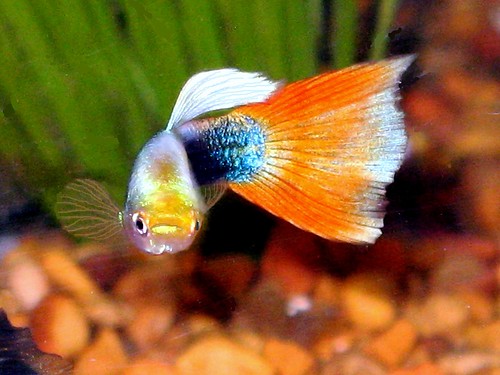 According to Aristotle, what separates man from beasts is his ability to reason. Humans have this luxury because of their large brains, but it comes at a price; guts! Scientists have long imagined that big brains come with an evolutionary cost and up until a recent study, it was all theory.
According to Aristotle, what separates man from beasts is his ability to reason. Humans have this luxury because of their large brains, but it comes at a price; guts! Scientists have long imagined that big brains come with an evolutionary cost and up until a recent study, it was all theory.
A Swedish team of researchers, led by Niclas Kolm decided to put this theory, known as the “expensive tissue hypothesis”, to the test. The hypothesis basically states that there is a trade-off between the demands of the brain and the demands of other organs. So, to prove this theory, the team selectively bred common guppies to produce bigger (or smaller) brains. They were able to produce brains that were as much as 9.3 percent larger. The bigger brained fish tended to have smaller guts, as well as produce fewer offspring.
The experiment tested 48 guppies using an underwater arithmetic test to see if the guppies (with large brains) possessed greater cerebral capabilities. It worked! The “smart” fish were more successful at learning and recognizing geometric shapes, that were on a door, in order to get to the food on the other side.
Where these “brainy” fish lost ground, was in the gut division. Males were found to have a 20 precent decrease and females an 8 percent decrease in gut size. Brainier fish(females) were found to produce 19 percent less offspring than the smaller brained fish. This evidence implies that larger brains may be the cause of smaller broods.
Even though the evidence pretty clearly supports the “expensive tissue hypothesis”, Kolm and his team have not completely ruled out the “genetic mechanism for the trade-off”. It is not obvious whether small guts or big brains develop first.


Leave a Reply